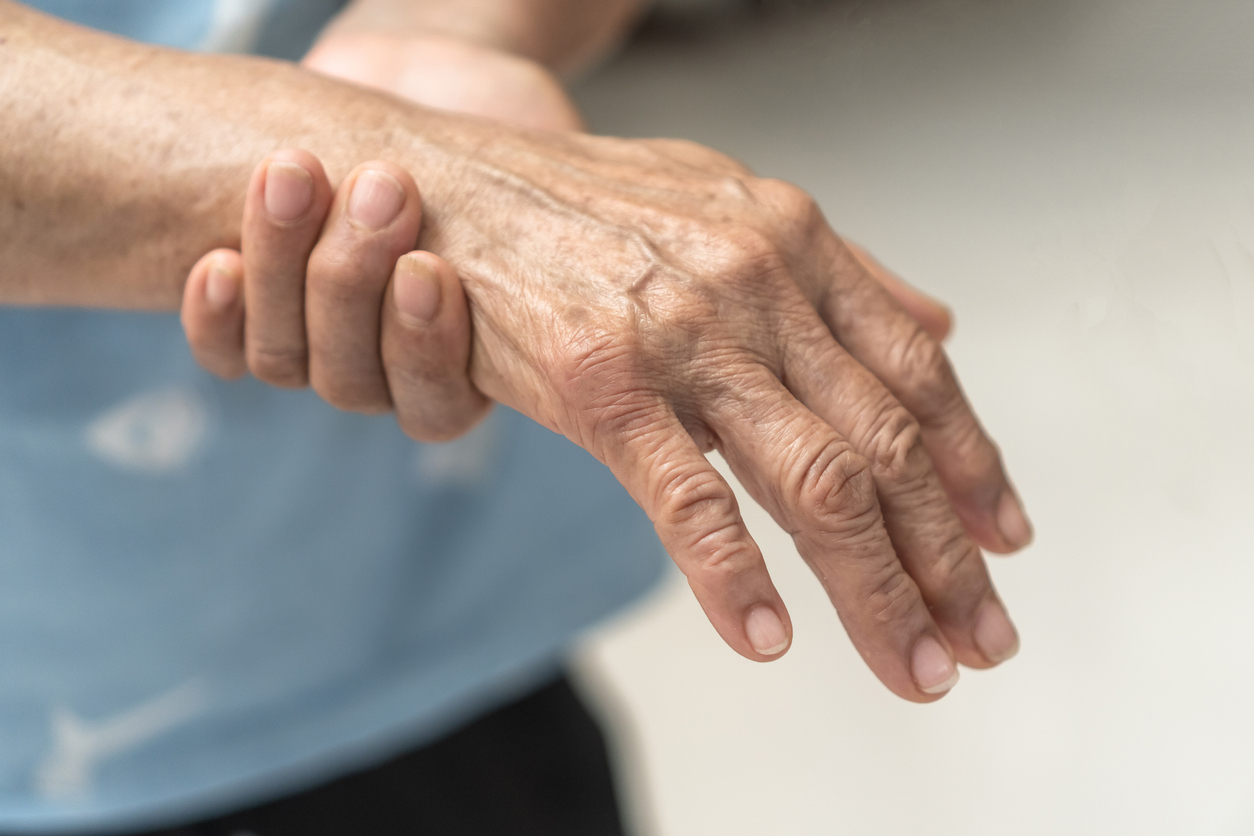This Symptom of Parkinson’s Is a Wake-up Call
Parkinson’s Disease (PD) is a progressive disorder,and the progression can be slow—some signs may appear up to twenty years before a diagnosis is made. “Although the exact prevalence of Parkinson’s disease (PD) in the United States is difficult to accurately determine, one estimate puts the number of currently diagnosed US patients in excess of 645,000,” an American Journal of Managed Care (AJMC) article explains, noting that “the figure climbs to approximately 849,000” if estimated undiagnosed cases are included.
PD is the second-most common neurodegenerative disease after Alzheimer’s disease, and similarly to Alzheimer’s and other types of dementia, there is currently no cure. Catching the disease early is a crucial component of treating and managing of the condition, but some signs can be subtle and easy to miss. A large number of Parkinson’s patients—over 60 percent—experience one symptom in particular. Read on to find out why having dry eyes could signal something more serious.
READ THIS NEXT: If You Can’t Smell These 3 Foods, Get Checked for Parkinson’s, Experts Say.

“Certain nerve cells (neurons) in the brain gradually break down or die,” the Mayo Clinic explains of Parkinson’s. “Many of the symptoms are due to a loss of neurons that produce a chemical messenger in your brain called dopamine.” When the levels of dopamine decreases, “it causes atypical brain activity, leading to impaired movement and other symptoms of Parkinson’s disease.”
PD can have severe effects on peoples’ motor and non-motor skills, explains Johns Hopkins Medicine. “While it’s true that Parkinson’s disease symptoms include shaking and tremor, rigid muscles, slowness of movement, and a frozen or ‘flat’ expression, it’s a lot more than that,” says the site, noting that other symptoms include “cognitive impairment or dementia (usually in later stages), anxiety and depression, fatigue, sleep problems and more.”
Johns Hopkins Medicine notes that while PD is not fatal, potentially deadly problems can manifest. “As the disease progresses, you may become more vulnerable to falls, which can be dangerous,” the site says. “Infection is another problem. In later stages of Parkinson’s, people often miss those signals and may not notice something’s up until it’s too late.”

The exact cause of PD is not known. According to the National Institute on Aging (NIA), some cases of PD seem to be hereditary, while others can be traced back to specific genetic mutations. But “while genetics is thought to play a role in Parkinson’s, in most cases the disease does not seem to run in families,” the NIA says. “Many researchers now believe that Parkinson’s results from a combination of genetic and environmental factors, such as exposure to toxins.”
Age is another risk factor for PD. “Young adults rarely experience Parkinson’s disease,” says the Mayo Clinic, noting that PD usually occurs in mid-to-late life, with the risk increasing as a person gets older. “Men are more likely to develop Parkinson’s disease than women,” the site explains. And “a number of medications can cause parkinsonism [symptoms of PD], because they block the dopamine receptor,” reports the American Parkinson Disease Association (APDA).
For more health news sent directly to your inbox, sign up for our daily newsletter.

Because PD causes both motor and non-motor symptoms, the signs can be extremely wide-ranging. PD requires that you have the symptom known as bradykinesia (slowed movements). “People who have this describe it as muscle weakness, but it happens because of muscle control problems, and there’s no actual loss of strength,” explains the Michael J. Fox Foundation (MJFF), which notes that other possible symptoms can include rigidity or stiffness, unstable posture or gait, and a tremor while muscles are resting. “This is a rhythmic shaking of muscles even when you’re not using them and happens in about 80 percent of Parkinson’s disease cases.”
Those are the more commonly known symptoms of PD. “Some of the lesser recognized ones—even among doctors—involve the eyes and visual system,” MJFF says. “People with PD blink less frequently, which can lead to dryness, irritation or burning of the eyes.”

Vision changes can be caused by a number of factors. Reasons behind dry eyes or blurry vision can include “hormone changes, autoimmune disease, inflamed eyelid glands or allergic eye disease,” says the Mayo Clinic. Other times, your eyes are sending a warning signal about a more serious condition. Vision changes can be a symptom of eye cancer, early-onset dementia, or PD, among other conditions.
“Dry eye disease (DED), which occurs when the eyes are not sufficiently moistened by tears, can lead to chronically dry eyes that cause discomfort and risk vision loss, significantly disrupting daily life,” reports Parkinsons News Today, noting that a recent study found the estimated occurrance of DED in Parkinson’s patients is between 53 percent and 60 percent.
“Some people with Parkinson’s report that their vision loses sharpness as their disease progresses,” advises the Parkinson’s Foundation. “Difficulties related to the eyes and vision often progress alongside other PD symptoms.”
Dry eyes can occur because of decreased blinking, which can also result in blurry vision. Other changes in eyesight include double vision, trouble with reading, and rouble voluntarily opening the eyes, known as apraxia, the Parkinson’s Foundation explains.
If you’re experiencing dry eyes, check with your healthcare provider about whether you should be screened for PD.
" Conservative News Daily does not always share or support the views and opinions expressed here; they are just those of the writer."

Now loading...